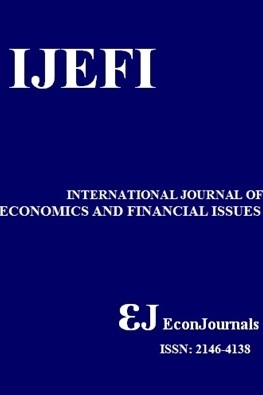Moderating Effect of Earnings Management on the Relationship Between Corporate Social Responsibility Disclosure and Profitability of Banks in Indonesia
Moderating Effect of Earnings Management on the Relationship Between Corporate Social Responsibility Disclosure and Profitability of Banks in Indonesia
corporate social responsibility, earnings management profitability, banking sector, Indonesia,
- Başlangıç: 2011
- Yayıncı: İlhan ÖZTÜRK
Effects of Exchange Rate and World Prices on Export Price of Vietnamese Coffee
Testing the Structure-Conduct-Performance Paradigm for the Turkish Banking Sector: 2008-2013
Comparative Study on Performance of Islamic Banks and Conventional Banks: Evidence from Oman
Zaroug Osman BİLAL, Omar Mohammad DURRAH, Tariq Mohamed ATİYA
Total Factor Productivity Analysis of Oil Palm Production in Indonesia
Nunung Nuryartono, Syamsul Hidayat Pasaribu, Pristi Nadhilah Khairina Panggabean
Russia among the Countries of the Baltic Region
Gennady M. Fedorov, Valentin S. Korneevets, Ilya N. Tarasov, Vladimir I. Chasovskiy
Random or Deterministic? Evidence from Indian Stock Market
İvani BORA, Naliniprava TRİPATHY
Investigating and Comparing Some Consumption-Based Asset Pricing Models: The Case of Iran
Azam MOHAMMADZADEH, Mohammad Nabi Shahiki TASH, Reza ROSHAN
Volatility and Commodity Price Dynamics in Nigeria
Charles Osondu Manasseh, Jonathan Emenike Ogbuabor, Obiorah K Obinna
Profitability and Cost Efficiency of Islamic Banks: A Panel Analysis of Some Selected Countries
